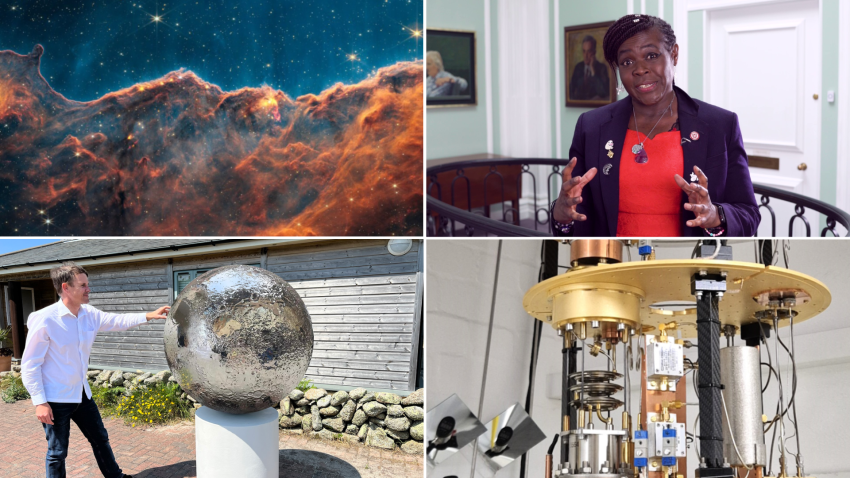From feeling every crater of the Moon on a new piece of artwork to learning about NASA’s cutting-edge study of alien planets, there is plenty for astronomy enthusiasts to enjoy at the Royal Society’s annual Summer Science Exhibition next month.
Visitors will be able to hear more about the science already undertaken by the James Webb Space Telescope (JWST), including what it has discovered so far on where stars are born, distant exoplanets and the formation of the first black holes.
There will also be the chance to hear from renowned space scientist Dr Maggie Aderin-Pocock, as well as marvelling at Mirror Moon, a unique artwork created by artist Luke Jerram which is being exhibited for the first time in London.
This year’s Royal Society Summer Science Exhibition will take place from 2 to 7 July, kicking off with an adults-only Lates event on Tuesday 2 July; followed by a full opening to the general public at 10am on 3 July.
Fourteen flagship exhibits will showcase a diverse range of scientific topics, from invisible neutrinos and quantum dark matter detectors to ancient Antarctic ice bubbles and sustainable batteries for the future.
The JWST exhibit will combine hands-on activities focussed on spectroscopy, models of the $10billion (£7.8million) telescope and its instruments, and high-resolution examples of some of its spectacular data.
The public will also be able to touch and feel every crater, valley and mountain on Earth’s only natural satellite thanks to Mirror Moon, which was made from stainless steel using NASA’s accurate topographical data of the lunar surface.
In addition to the exhibits there will be dozens of workshops, hands-on activities and talks throughout the week, including one from Dr Aderin-Pocock on 3 July.
The winner of this year’s Royal Society Young People’s Book Prize will discuss the challenges and opportunities she has faced in her career.
Cosmologist Carlos Frenk, Fellow of the Royal Society and Chair of the Public Engagement Committee, said: “The range of top science on offer at the 2024 edition of the Royal Society’s Summer Science Exhibition is truly astounding.
“We are expecting more than 10,000 visitors over the course of the week and we have something for all ages and all interests.
“Science is so important in everything we do in our everyday lives, and that has never been truer than in recent years, with the pandemic and the challenges of climate change.
“I would urge visitors to come and see some of the truly amazing work being done by scientists across the UK for the benefit of us all. They will not be disappointed.”
For full details of all the activities and events at the Summer Science Exhibition click here.
Media contact
Sam Tonkin
Royal Astronomical Society
Mob: +44 (0)7802 877700
Notes for editors
About the Royal Astronomical Society
The Royal Astronomical Society (RAS), founded in 1820, encourages and promotes the study of astronomy, solar-system science, geophysics and closely related branches of science.
The RAS organises scientific meetings, publishes international research and review journals, recognises outstanding achievements by the award of medals and prizes, maintains an extensive library, supports education through grants and outreach activities and represents UK astronomy nationally and internationally. Its more than 4,000 members (Fellows), a third based overseas, include scientific researchers in universities, observatories and laboratories as well as historians of astronomy and others.
The RAS accepts papers for its journals based on the principle of peer review, in which fellow experts on the editorial boards accept the paper as worth considering. The Society issues press releases based on a similar principle, but the organisations and scientists concerned have overall responsibility for their content.


